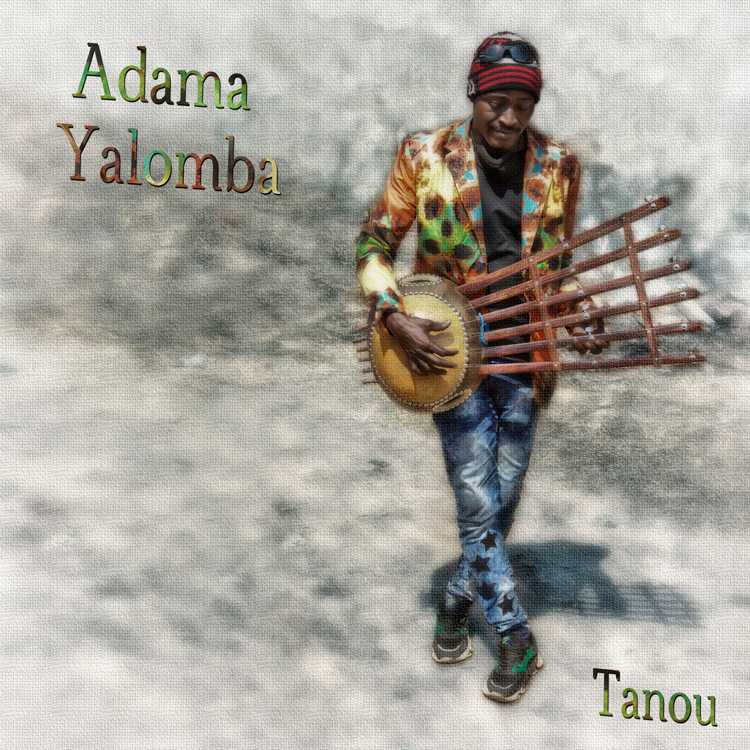Adama Yalomba – Tanou (Remote Records, 2024)
Adama Yalomba’s transformative journey with the ancient Malian n’dan, a six-string harp with roots in the pluriarc, marks a revival of a musical heritage on the brink of extinction. Set to release on Tuesday, March 19th, 2024, Yalomba’s album “Tanou” is a pivotal development in the evolution of this unique instrument.
In West African music, where the kora and its luminaries like Ballaké Sissoko and Toumani Diabaté hold sway, the n’dan stands as a distinct entity. Adama Yalomba emerges as the undisputed king, heir, and prince of this ancient stringed instrument, preserving its essence while infusing it with contemporary vibrancy.
While the kora tradition thrives with established and emerging talents, the n’dan faces challenges. Yalomba attributes its diminishing popularity to its demanding nature, requiring patience and endurance. Despite the challenges, his latest album, Tanou, highlights the n’dan’s adaptability across genres, illustrating Yalomba’s vocal virtuosity, instrumental skill, exceptional production, and soulful vocals. It transcends mere performance; it’s a transformative movement preventing the obscurity of one of Africa’s oldest stringed instruments.
Yalomba’s expertise positions him alongside West African music luminaries like Ballaké, Toumani, and Bassekou Kouyaté. Tanou represents more than an album; it’s a revival, resonating with contemporary African youth and breathing new life into the venerable African string instrument.
The origins of the n’dan trace back through African chordophones, including the donso ngoni, Kamele ngoni, classical kora, and njurkele. Yalomba’s mastery extends to playing them all, emphasizing the instrument’s undeniable significance in African musical heritage.
Traditionally played for kings and travelers, the n’dan’s melodies accompanied journeys, instilling courage and reinforcing missions. In contemporary times, cassette recordings adapted to technology, carrying the melodies and messages for travelers. Tanou encapsulates this tradition, a firestorm of strings and soul, lighting up the future with the oldest magic.
Yalomba’s redesign of the n’dan, now with 12 strings representing Mali’s 12 main ethnic groups, symbolizes a commitment to revamping tradition. This enhancement increases versatility, allowing skillful play of heptatonic and pentatonic repertoires, harmonizing with Mali’s diverse languages and musical styles. The updated design makes the n’dan apt for performances with modern orchestras, while preserving its unique tonal quality. Adama Yalomba’s Tanou is not just an album; it’s a testament to the resilience and adaptability of an ancient instrument in the hands of a contemporary virtuoso.
Song descriptions:
Mon Enfant: Adama Yalomba Traoré urges parents to respect children’s rights, emphasizing the reciprocal and nurturing nature of filial love.
Akadi Dow Yé: Sung by Madou Yalomba Traore, the song reflects on humanity’s constant pursuit of happiness, irrespective of circumstances, portraying life as a journey for emotional fulfillment.
Lamô: Highlights the crucial role of education in a nation’s economic development, emphasizing the shared responsibility of parents and society in shaping positive behaviors in the youth.
Tanou: Urges Africans to embrace and preserve their culture in the face of globalization, expressing pride in heritage and calling for proactive efforts to maintain traditions.
Donsokè: Pays tribute to traditional hunters (“donso”) and their role as guardians of the environment and community values, expressing gratitude for their commitment.
N’Galo: Narrates the concept of “Sinankouya,” a playful kinship fostering peace and solidarity in Malian society.
Ni ben Fé: Addresses authenticity and reciprocity in love, emphasizing sincerity and trust as essential foundations for strong relationships.
Kanto Gnôgon Gné: Advocates for positive communication and benevolent words to strengthen human relationships, contrasting with the corrosive impact of hate-filled speeches.
Anbèsé: Celebrates African knowledge and cultural wealth, recognizing Africa’s influence on global music genres and inviting appreciation for its artistic richness.
Tilé kè: Madou Yalomba pays tribute to departed Malian artistic icons, reflecting on their contributions to Mali’s musical legacy and aiming to inspire future generations.


